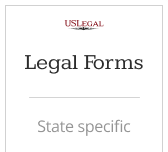Full question:
My house was foreclosed on and went to Cobb County Courthouse steps for sale in April 2010. I see the house is still for sale which tells me it didn't sell on the court house steps. I had an 80/20 loan with 2 different lenders. What legal rights in Georgia does the junior lender have to recover their money? I have been threatened with bank levy, wage garnishment, and money judgement however the lender contact has stated they are trying to get me to arrange a payment plan before sending my defaulted loan to litigation to decide which way they will proceed. I have read that in Georgia after the house sells at the court house the lender has 30 days to file for a deficiency for the balance of the loan. I have heard nothing from the 1st lender that foreclosed and now the 2nd lender is trying to strong arm me for monies I don't have. What legal options can they take against me to get their money?
- Category: Real Property
- Subcategory: Foreclosure
- Date:
- State: Georgia
Answer:
The junior lender may collect the money owed to them out of the proceeds of the sale. if there are any remaining proceeds after the senior lender(s) is/are paid. Any remaining amount owed may still be collected if they are not the lender who brought the foreclosure action. A judgment lien is created when a court grants a creditor an interest in the debtor's property, based upon a court judgment. A judgment lien can be filed if an actual judgment in a lawsuit is obtained from a court. Such cases include failure to pay a debt, including credit cards, bank loans, or deficiency judgments on repossessed vehicles.
In some circumstances, judgments can be enforced by sale of property until the amount due is satisfied. A plaintiff who obtains a monetary judgment is termed a "judgment creditor." The defendant becomes a "judgment debtor." secure payment of the claim to the injured party. After the judgment creditor places a lien upon the attached property, the next step in the collection process is to conduct a sale of the attached property to satisfy the judgment debt. If a lien were placed on a home, the judgment creditor would then seek to foreclose on the property, in the same way a mortgage holder such as a bank would foreclose if it were not paid. Laws regarding judgment liens vary by jurisdiction, so local laws should be consulted for specific requirements.
A judgment lien is created when a plaintiff gets a judgment for money damages against a defendant and records that judgment in the county where land of the defendant is located. After the judgment creditor places a lien upon the attached property, the next step in the collection process is to conduct a sale of the attached property to satisfy the judgment debt. If a lien were placed on a vehicle, the judgment creditor would then seek to sell the vehicle, in the same way a mortgage holder such as a bank would foreclose if it were not paid.
A judgment creditor may also request that the court issue a writ for garnishment of the debtor's wages. If granted, the court order for garnishment is served directly upon the debtor's employer, who must comply with its terms. Wage garnishment is a legal procedure governed by
state law in which a person’s earnings are required by court order to be withheld by an employer for the payment of a debt and paid directly to the judgment creditor by the debtor's employer. There are different types of garnishments, as defined by state laws, which vary by state. A garnishment may be made on a one-time or continuing basis. Some kinds of income are exempt, which means that they cannot be garnished at all by creditors for consumer debts, including welfare, unemployment, veterans benefits, Social security, workers' compensation, pensions, and child support payments that you receive. For ordinary garnishments (i.e., those not for support, bankruptcy, or any state or federal tax), the weekly amount may not exceed the lesser of two figures: 25 percent of the employee's disposable earnings, or the amount by which an employee's disposable earnings are greater than 30 times the federal minimum wage.
This content is for informational purposes only and is not legal advice. Legal statutes mentioned reflect the law at the time the content was written and may no longer be current. Always verify the latest version of the law before relying on it.

